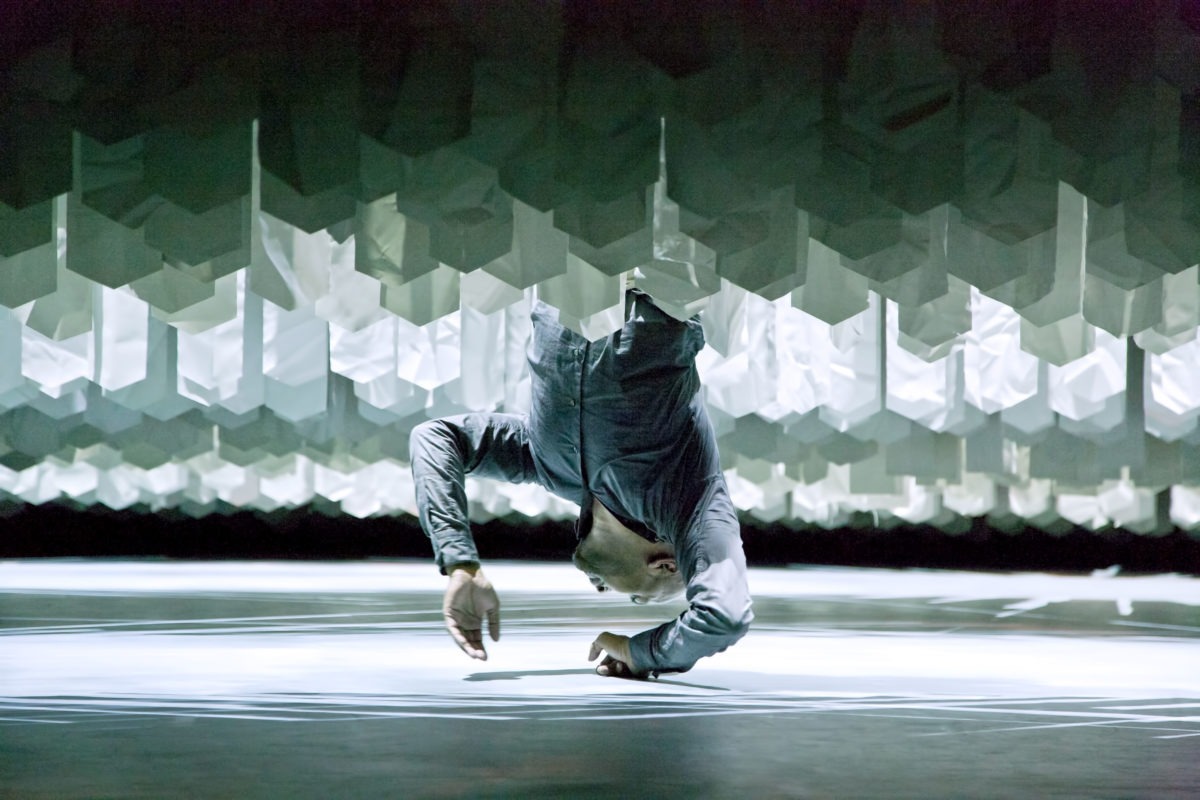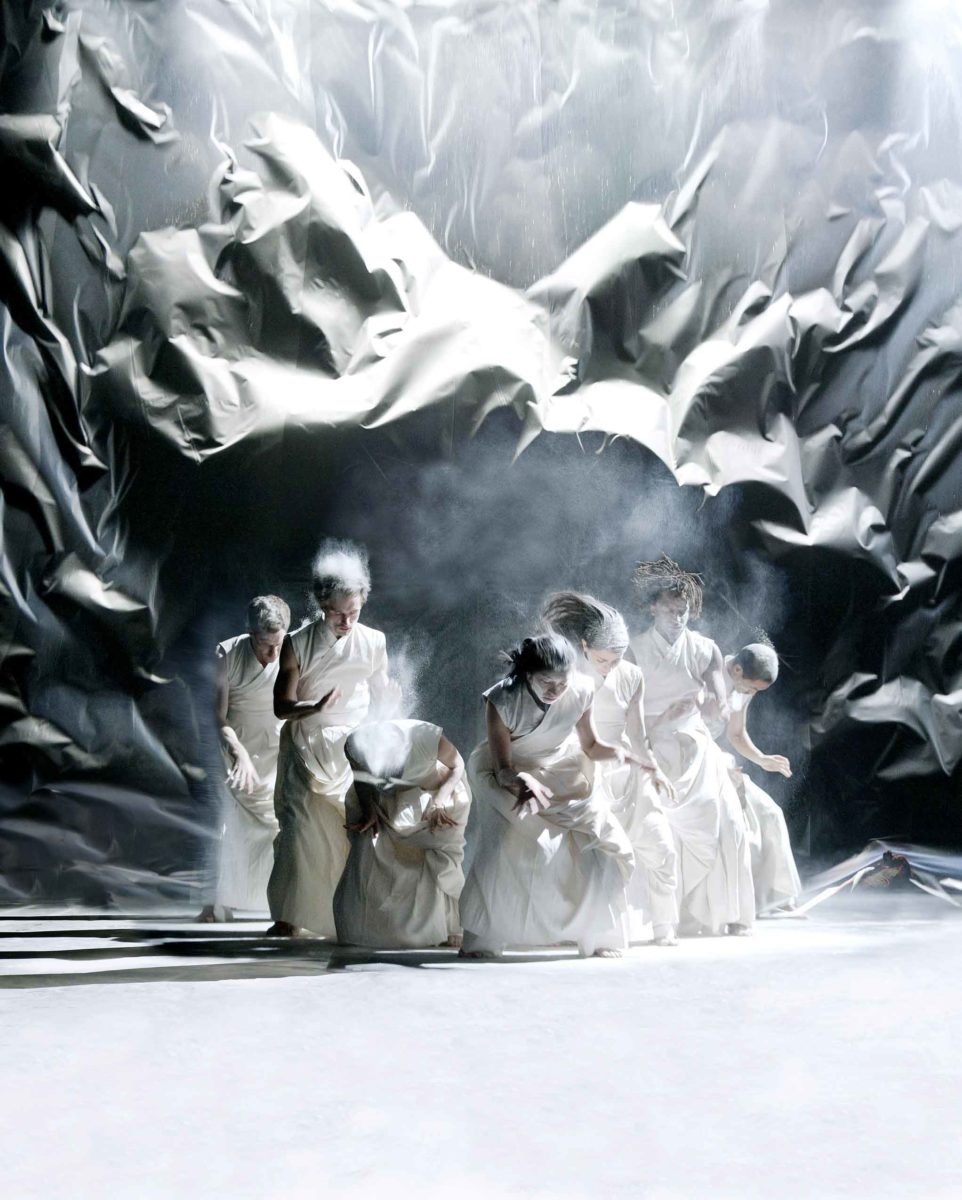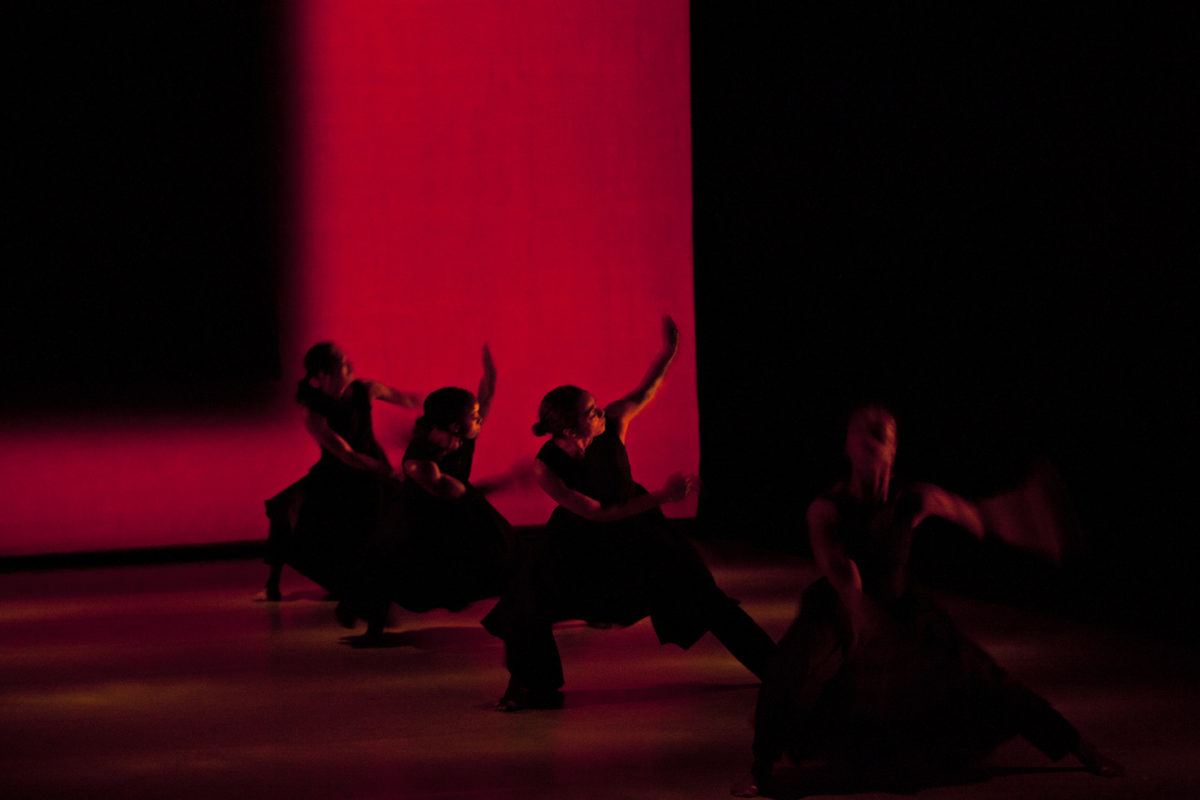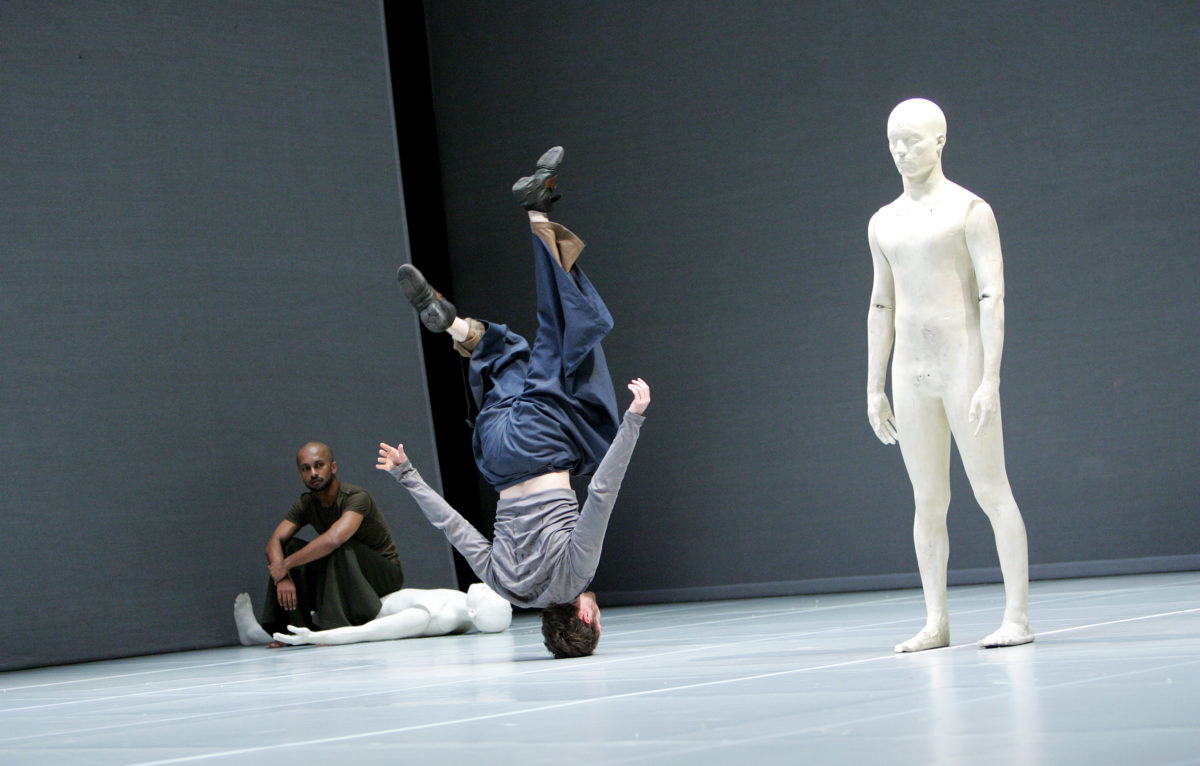Interview: Akram Khan MBE, Dancer & Choreographer
By Keshav AnandSouth London native Akram Khan’s early solo works gleaned much praise, not only for his confident and innovative interpretations of kathak, but also his compelling capacity as a performer. Following appearances at the Dance Umbrella festival and a period working with celebrated choreographer Jonathan Burrows, he joined the X-Group project, a creative programme for young choreographers in Brussels. Building on work he created there, Khan returned to London later the same year and founded his own dance company. A meteoric rise followed, with a slew of critically acclaimed projects, which led to Khan receiving an MBE for his services to dance in 2005, among other achievements. In the run up to performing his spectacular solo work DESH at the Sadler’s Wells Theatre, running until 3 June, Something Curated caught up with Khan to learn more about his career, influences and life in Wimbledon.

Something Curated: How and when did you become involved with dancing – could you tell us about your journey into the field?
Akram Khan: I started pretty young; from three I was dancing for the pure joy of it, and at around seven I started my Indian classical training, and that’s when it became quite serious for me. I got into the field partly by default; I loved doing it and I didn’t really want to do any other subject that people expected me to do. A lot of my community were pressuring me to get into mathematics or a science, because my Grandfather was a genius mathematician. In a way, that pushed me towards doing the opposite and going into dance, but somehow I found mathematics in dance.
SC: At 13, you were cast in Peter Brook’s production of Mahabharata, touring between 1987-9 – what was this experience like and how did it feel to have so much responsibility at that age?
AK: For me it was like a trip. One of the most adrenaline fuelled, exciting adventures, which didn’t feel like work. In regards to the responsibility, I don’t think I quite understood, nor did I realise the scale of the opportunity. I was just 13 and a bit of an idiot really. Looking back, I think, wow, what an experience and what an honour to have been in an environment with some of the greatest actors in the world at that time. It’s one of those pieces that people who have seen it will always remember; it’s kind of a pivotal moment for theatre, and I just happened to be a small part of it.
SC: You have maintained a longstanding relationship as an associate artist with Sadler’s Wells – could you tell us a bit about this?
AK: It’s like a family really. I feel very proud to be connected with them and to have a relationship with Alistair Spalding, the Artistic Director, particularly. To be premiering work at Sadler’s, being supported by them, it’s such a great venue, and to be a part of that is very exciting. Our relationship continues to grow deeper.
SC: Described as your most personal work to date, could you give us some insight into the narrative or inspiration behind DESH?
AK: It’s a story about my father and I really. It’s not only my story; it’s the story of my Dad, and how both our stories are interconnected. It’s about the human condition and labour. This connection between the human condition and physical labour is something I was really struck by when I went to Bangladesh, my father’s homeland. It’s to do with identity, his, and where I belong in all of that. His sense of Bangladesh and mine of Britain; it’s a search for home and an understanding of belonging, in relation to my father.

SC: What was the process like working with Tim Yip on the production?
AK: It’s always very organic with him. He’s inspiring to work with and we have very funny, kind of Blackadder, moments, where things get lost in translation. We completely misunderstand each other and then arrive at something new; I say “blue,” he understands “green,” and we end up with pink. I’m often surprised, and say, “That’s not really what I meant but it’s actually better than my idea was.” And I think he feels the same. He’s really great to work with, responsive and a fantastic listener; he absorbs a lot before responding and doesn’t push an agenda.
SC: Could you talk to us about your involvement in the upcoming 2017 Darbar Festival, part of the UK-India Year of Culture?
AK: I’m so excited about the festival and I feel like I want to be a champion for Indian classical dance. The Darbar Festival is known for great music, and what’s fantastic about it is that it doesn’t just present the famous names, they invite artists that are perhaps unknown, or lesser known in this country or in the West, but who are equally as talented as the artists who have fame. I want to do that slowly with dance as well, so we have a balance between people who are well known and those who are still emerging, but their calibres are equally worth celebrating. I’m very excited to be curating the dance part of the festival.
SC: Could you expand on the relationship between your classical kathak training and contemporary dance background? How has this union influenced your work?
AK: It’s a bit like growing up speaking a language, the way that a child absorbs things from their surroundings, you absorb the way your parents speak, you imitate things. Our species is great at aping, great at replicating and repeating. Kathak is a bit like that for me. I grew up, and as a child I absorbed it and copied my teacher’s mannerisms and style. I would say that contemporary is a bit like when you become a teenager, and you start shedding part of your way of speaking, and find a different identity amongst your friends; you make your own decisions about how you want to speak, taking a new initiative. Contemporary dance is a bit like that. I started to find my own voice through it, whereas with kathak, I was taking on other people’s voices.

SC: When you launched the Akram Khan Company in 2000, your first full-length work Kaash was a collaboration with Anish Kapoor and Nitin Sawhney – how did this collaboration come about and what was the experience like?
AK: I was a huge fan of Anish’s work. It was a woman called Angela Bernstein, who’s and incredible person, operating a bit like a shadow. She hides behind some of the most important connections and works that have been done in most art forms, certainly in Britain. She helps connect people, and she was the one who introduced me to Anish Kapoor. It was a great honour to work with him. It was kind of crazy; I was this young choreographer working with this living legend. With Nitin Sawhney, he was a composer whose work I admired. I was always in love with his music so it was a dream team really, and I learnt a lot from both of them.
SC: Having worked with numerous eminent figures, including Hanif Kureishi, Juliette Binoche, and Kylie Minogue, could you talk to us about one of your favourite collaborations?
AK: I’d say, Zero Degrees, which was with Sidi Larbi Cherkaoui, Nitin Sawhney and the visual artist Antony Gormley. But my closest collaborator and my all time favourite, and I continue to work with her, is dramaturg Ruth Little. She has been pivotal, particularly in the latter half of my career.
SC: Anyone who you would like to collaborate with in the future?
AK: There are directors who I really admire who I’d love to collaborate with one day, like Asghar Farhadi, who’s an Iranian film director. In terms of actors, again, there are so many. I generally like to work with artists who are not from dance but from theatre or film, or the visual arts.
SC: What did it mean to you to perform at the 2012 London Olympics opening ceremony?
AK: It was probably my most profound or greatest moment of feeling lucky. To be a part of that and to be given that exclusive five minutes, or however long it was, to just share my vision, and collaborate with Danny Boyle and his creative team on such a scale; it was really just such an extraordinary experience.

SC: Are there any other projects that you are currently involved with that you could tell us about?
AK: There are quite a few projects that I can’t talk about but Darbar Festival is definitely the one I can share.
SC: Where do you live in London and what drew you to the area?
AK: I’m based around Wimbledon and my parents live on the next road, and my sister lives on another nearby road. I don’t know why we call it Wimbledon, we should just start calling it Wimble-Khan or something else Khan related. I grew up here and now my family is here, my beautiful wife and two wonderful kids. It’s somewhere I feel very comfortable and familiar with because I’ve always been here. I didn’t get drawn to the area really, it was my parents who moved here; my Dad owned a restaurant in Wimbledon.
SC: Where do you look for inspiration in London?
AK: I don’t know about inspiration but to get space to find inspiration, I really like to go up to Richmond Park. It’s an extraordinary space.
SC: Favourite restaurant in London?
AK: It’s a Korean restaurant, Gaya, in Raynes Park.
SC: Favourite travel destination or where would you live if not London?
AK: It would have been New York if Donald Trump wasn’t in power. I also love Tokyo.
Feature image: Akram Khan in DESH (Photo: Richard Haughton) | Images courtesy of Akram Khan Company & Sadler’s Wells Theatre
Interview by Keshav Anand